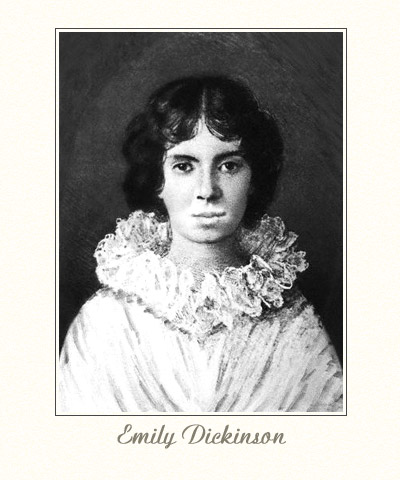Dante Gabriel Rossetti
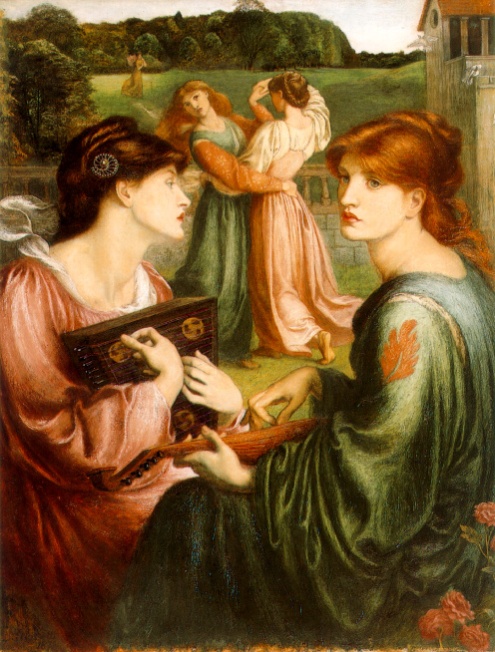
In 1841, Rossetti entered the Sass’s Academy art school. He was considered extremely skilled beyond his time and made made a good name at a young age. Rossetti’s first major painting was called The Girlhood of Marry Virgin. He was also a skilled poet. His poems The Blessed Demozel appeared in 1850.
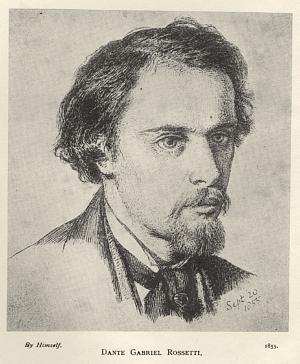
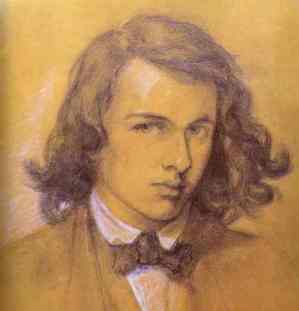
Oscar Wilde
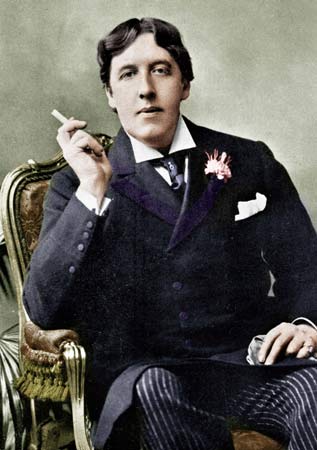
Wilde was born in Dublin on October 16, 1854. He lost his sister at a very young age that had a tragic effect on his life. She died at the age of eight and he was only twelve. This inspired him to write one of his first pieces of poetry. He also is famous for writing The Ballad of Reading Gaol. He prospered in fame for a time but than everything went down hill. He had charges made against him from an 1885 law which made “homosexual relations between men” illegal. He went to prison for several years. Wilde’s health deteriorated, and in 1900 he underwent an operation to fix middle ear problems caused by a fall in his prison cell. The ear developed an abscess which led to cerebral meningitis. He passed away in Paris on November 30 at the age of forty-six.
Requiescat
By Oscar Wilde
Tread lightly, she is near
Under the snow,
Speak gently, she can hear
The daisies grow.
All her bright golden hair
Tarnished with rust,
She that was young and fair
Fallen to dust.
Lily-like, white as snow,
She hardly knew
She was a woman, so
Sweetly she grew.
Coffin-board, heavy stone,
Lie on her breast,
I vex my heart alone,
She is at rest.
Peace, Peace, she cannot hear
Lyre or sonnet,
All my life’s buried here,
Heap earth upon it.
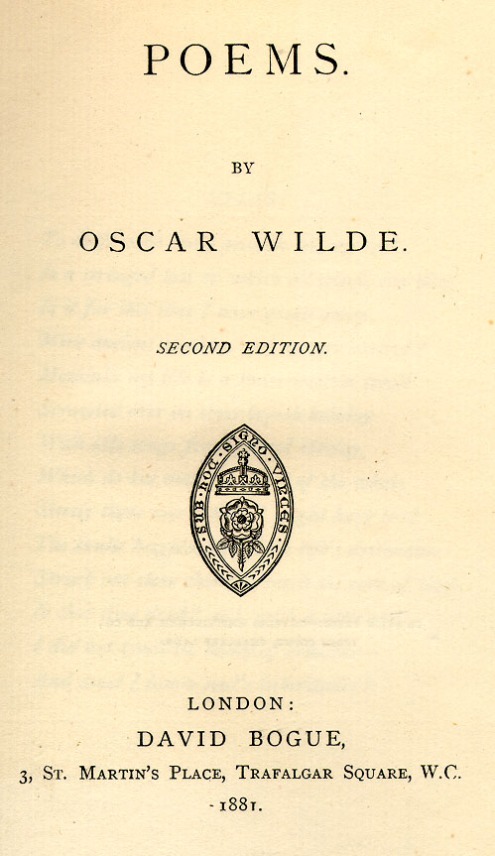
Virginia Woolf
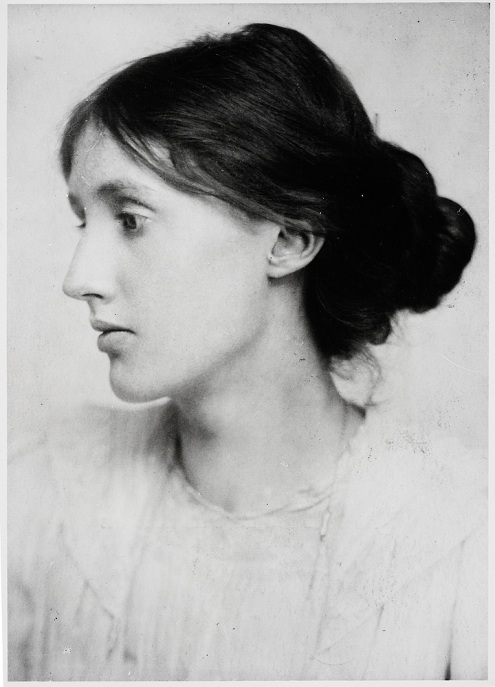
Woolf was a significant literary figure in lodon and is famous for writing Mrs. Dollaway, To the Lighthouse, and Orlando in 1928. Woolf was born Adeline Virginia Stephen in London in 1882. The death of her mother in 1895 and her sister two years later, caused Woolf’ first emotional breakdown.The death of her father in 1904 provoked her to collapse and was briefly institutionalised.On 28 March 1941, Woolf committed suicide. She slipped on her coat, filled its pockets with stones, then walked into the River Ouse near her house and drowned herself. Woolf’s body was not found until 18 April.
James Robert Baker
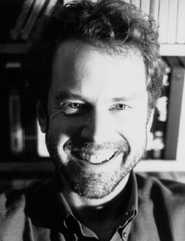
Baker was a gay American who wrote mostly about gay-themed transgressional fiction. After becoming famous for writing the novels Fuel-Injected Dreams, Boy Wonder, and Tim and Pete, it became increasing difficult for Baker to get any more work published. After the reception of Tim and Pete, several critics him started calling him “The Last Angry Gay Man.” His life partner, Ron Robertson, would say that the criticism caused Baker’s emotional break down (and eventually his death.) Baker committed suicide at his home on November 5, 1997 by hanging himself. This caused an angry uproar from the gay community. Homosexual authors were rattled by this because of their need to write in a gay perspective.
The Life and Death of Dylan Thomas
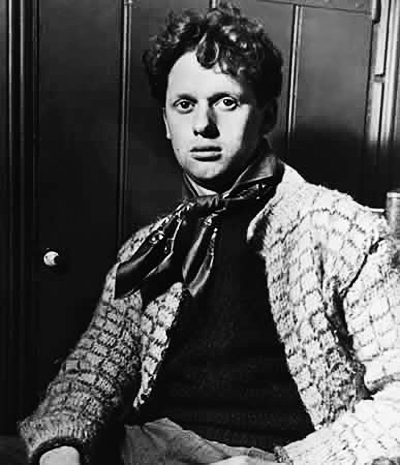
Dylan Marlais Thomas was born in Swansea, Wales on October 27, 1914. In December of 1934 he moved to London and released his first book of poems called Eighteen Poems. Sometimes Thomas would work on one line of poetry for days. His poetry would build up line by line, at glacier like speed. In April of 1936 he met Caitlin MacNamara and married her two years later after publishing his second book of poetry called Twenty-five Poems.He moved back to Whales, where him and his wife had three children. But unfortunately he dropped dead in his New York hotel during his fourth lecture tour of the United States in 1953. Dylan Marlais Thomas drank himself to death only a few days after his 39th birthday.
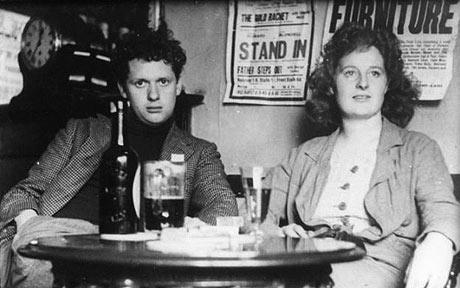
DO NOT GO GENTLE INTO THAT GOOD NIGHT
Do not go gentle into that good night,
Old age should burn and rave at close of day;
Rage, rage against the dying of the light. Though wise men at their end know dark is right,
Because their words had forked no lightning they
Do not go gentle into that good night.Good men, the last wave by, crying how bright
Their frail deeds might have danced in a green bay,
Rage, rage against the dying of the light.Wild men who caught and sang the sun in flight,
And learn, too late, they grieved it on its way,
Do not go gentle into that good night.Grave men, near death, who see with blinding sight
Blind eyes could blaze like meteors and be gay,
Rage, rage against the dying of the light.And you, my father, there on the sad height,
Curse, bless me now with your fierce tears, I pray.
Do not go gentle into that good night.
Rage, rage against the dying of the light.
The Suicide of Sylvia Plath
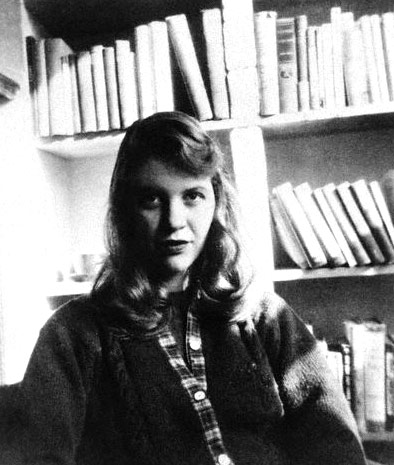
In 1953, the poet Sylvia Plath attempted suicide for the first time. Her earlier hospitalization and shock therapy may have left her traumatized enough to eventually sink that low into depression. Plath said that her time in the hospital was “a time of darkness, despair, and disillusion–so black only as the inferno of the human mind can be–symbolic death, and numb shock–then the painful agony of slow rebirth and psychic regeneration.” She eventually pulled through these tragic times in her life. In 1956, she married British poet Ted Hughes after receiving a Fulbright scholarship. She went on to have three children even though she had suffered a painful miscarriage Her friends would say that she seemed cheerful most of the time, but i think that her feelings of happiness were not strong enough to help her overcome her demons.
Plath took her own life on the morning of February 11, 1963 at the age of 31. Leaving out the morning’s breakfast, she tightly sealed the rooms between herself and her sleeping children with wet towels and cloths. Plath then laid her head in the oven while the gas was turned on. Many will argue that Plath did not intend to die because of a note that she had left on her neighbors door,asking him to call her doctor. Others will say that she thrusted her head so far back into the gas oven, that she had really ment to die.
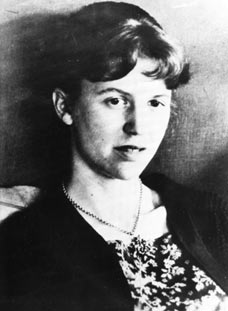
Ariel
Stasis in darkness.
Then the substanceless blue
Pour of tor and distances.
God’s lioness,
How one we grow,
Pivot of heels and knees!–The furrow
Splits and passes, sister to
The brown arc
Of the neck I cannot catch,
Nigger-eye
Berries cast dark
Hooks—-
Black sweet blood mouthfuls,
Shadows.
Something else
Hauls me through air—-
Thighs, hair;
Flakes from my heels.
White
Godiva, I unpeel—-
Dead hands, dead stringencies.
And now I
Foam to wheat, a glitter of seas.
The child’s cry
Melts in the wall.
And I
Am the arrow,
The dew that flies,
Suicidal, at one with the drive
Into the red
Eye, the cauldron of morning.
Sir Walter Scott’s Journey to Fame
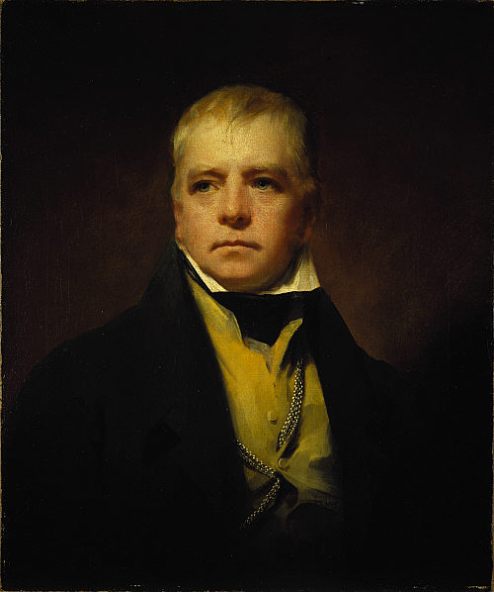
In 1802 Sir Walter Scott’s first poem, Minstrelsy Of the Scottish Boarder, became recognized and widley respected. As a poet Scott rose into fame with the publication of The Lay of the Last Minstrelin 1805. This famous poem is about an old border country legend. He had burned its original version when his friends had shown harsh criticism towards it. Scott returned to the poem in 1807, after a horse had kicked him and he was bed ridden for several days. The Lay of the Last Minstrel became widley loved and made him the most popular author of his time. It was followed by Marmion, The Lady in the Lake, and Rokeby. Scott’s final major poem, The Lord of the Isles,was published in 1815. The designation of this poem emerged from a series of hybrid Viking/Gaelic, who wielded sea-power with fleets of galleys.
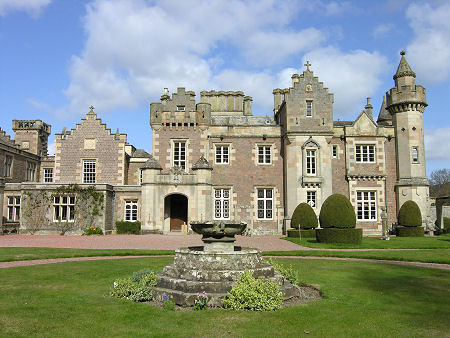
|
|||
|
The Mysterious Death Of Edgar Allan Poe
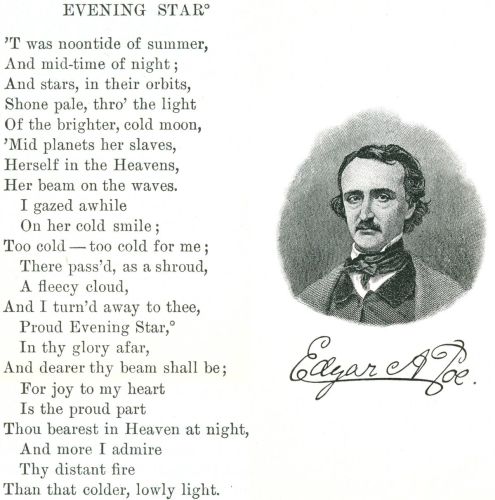
Edgar Allan Poe was discovered lying unconscious on October 3rd 1849 on a wooden plank outside Ryan’s saloon on Lombard St. in Baltimore. His hospitalization records indicate that at first he was delirious with tremors and hallucinations. He then fell into a coma but soon emerged from it. He was calm and seemed normal, but then became delirious and combative once again, forcing them to put Poe in restraints . He died on his fourth day of hospitalization. It was said that the cause of death was “congestion of the brain.” There are also whispers that Poe died from a combination of drinking and opium abuse. He disappeared for five days when he left his home to visit friends and family in Philadelphia. He was seen drunk and babbling through the streets. Long term use of opiates caused serious neurological damage to his brain. He also had epilepsy and infections. Dr. John J.Moran cared for Poe in his final days. He wrote that in the final stages of rabies, people have symptoms of confusion that may come and go. In addition with swings in pulse rate, such as respiration and temperature. Poe had all of these side-effects. The amount of time that a person can live in the final stages of rabies is four days, which is the exact amount of time that Poe lived from the time he was found. He took care of several animals so many believe he was bitten by one of his cats.
Poe was announced dead on October 7, 1849. His last words were “Lord help my poor soul.” Edgar Allan Poe’s death will always remain somewhat of a mystery. It is completly believable that he abused himself physically and mentally throughout his entire life. And it comes as no surprise that he would die from rabies in the end.
A Look into the Life of Gwendolyn MacEwen
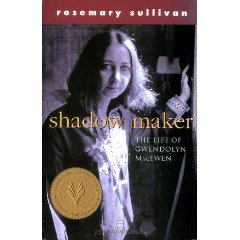
This land like a mirror turns you inward
And you become a forest in furtive lake;
The dark pines of your mind reach downward,
You dream in the green of your time,
Your memory is a row of sinking pines.
Explorer, you tell yourself this is not what you came for
Although it is good here, and green;
You had meant to move with a kind of largeness,
You had planned a heavy grace, an anguished dream.
But the dark pines of your mind dip deeper
And you are sinking, sinking, sleeper
In an elementary world;
There is something down there and you want it told.
-Gwendolyn MacEwen
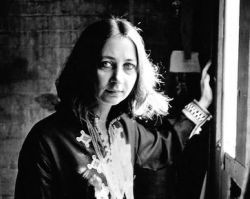
Growing up with an emotionally unstable mother and alcoholic father, Gwendolyn MacEwen suffered from enormous insecurity. Her mother was institutionalized and as a result, her father slipped farther and farther into despare. She taught herself several different languages and was fascinated with Jewish mysticism and general mythology. Her themes consisted of myth, magic, and dream. She was never really famous beyond a certain distance, but won many Canadian awards for her brilliant literature. MacEwen married twice. Once to a Greek musician that made her happy for a short period of time. But because of her heavy drinking, they eventually drifted apart. I cant help but think that she ruined her close relationships because she thought she didnt deserve to be happy. She was selfdestructive. She was dark and sorrowfull with eyes lined with kohl as if her appearance portrayed how she really felt inside. MacEwen believed that poetry “was a form of magic that could change lives.”
The Secluded Life of Emily Dickinson
Emily Elizabeth Dickinson had particular interests that she maintained in her life. In her twenties her days may have consisted of coffee house chats with her close friend and critic Terence Higginson. “I was never with anyone who drained my nerve power so much.” (Higginson). Dickinson was painfully shy and uncomfortable around most people that were not closely related to her. Her seclusion gradually occurred in her late twenties. Even though in Emily’s younger years she didn’t seem as irritated around company as she did in her twenties, she eventually physically secluded herself from the outside world. I think that in her secluded years, she found the happiness and comfort that she needed to write her greatest poetry. It does seem as if she was depressed most of her life but there are times where she had recorded moments of great happiness. She still maintained her love for music, literature, and children. Dickinson ranged from sneaking around corners so she could listen to an admiring pianist, to lowing a basket of baked sweets and poems out her window to little children in her neighborhood. After her death, her sister was instructed to burn her remaining letters. Fortunately she ignored this request and found a box of Emily’s full of 1,700 poems. The places that Dickinson’s mind had taken her when she left society drove her to create the originality in her poetry.
My life closed twice before its close.
It yet remains to see
If immortality unveil
A third event to me,
So huge, so hopeless to conceive
As these that twice befell,
Parting is all we know of heaven,
And all we need of hell.
Emily Dickinson
We can concur that Emily did in fact have a secret lover. She was not only secretive about it, but did not mention his name in her love letters and poetry. Scholors discovered a mysterious letter sent out by Dickinson in 1850. The letter invited someone to “meet me at sunrise, or sunset, or the new moon.” Scholars were fairly certain that this mysterious lover was George Gould. But I’m not so sure. Emily was already so secretive about her life. There is no way of knowing who it was for sure. Not to mention she wasn’t always the type to play by the rules. I can see her as a hippie of her generation. She was generally uninterested in politics, she found happiness, love, and beauty through nature, and loved music and fine art. Emily was free spirited because she did what she wanted to do to feel comfortable in the world. It is said that when Mabel Loomis Todd, the talented wife of Amherst College astronomer David Todd, was invited to play the piano for Dickinson and her younger sister in 1882, she was warned by their sister-in-law, Susan Dickinson. She implied that the Dickinson sisters “have not, either of them, any idea of morality.” Sue went on to say, “I went in there one day, and in the drawing room I found Emily reclining in the arms of a man.”
That I did always love
That I did always love,
I bring thee proof:
That till I loved
I did not love enough.
That I shall love alway,
I offer thee
That love is life,
And life hath immortality.
This, dost thou doubt, sweet?
Then have I
Nothing to show
But Calvary.-Dickenson

